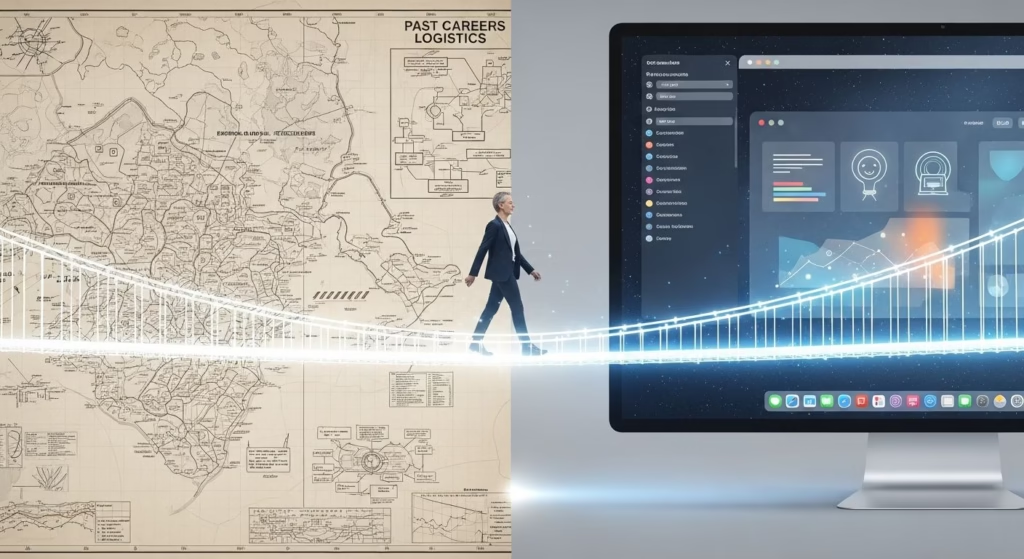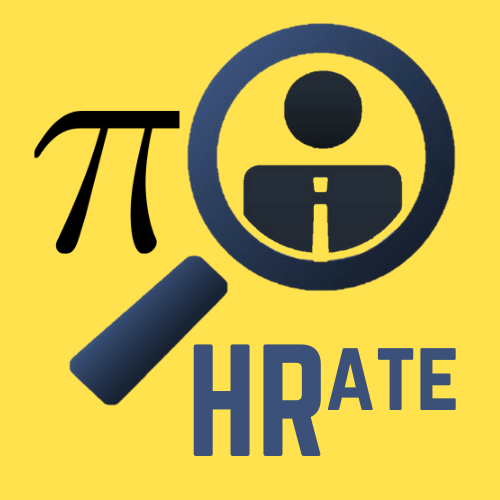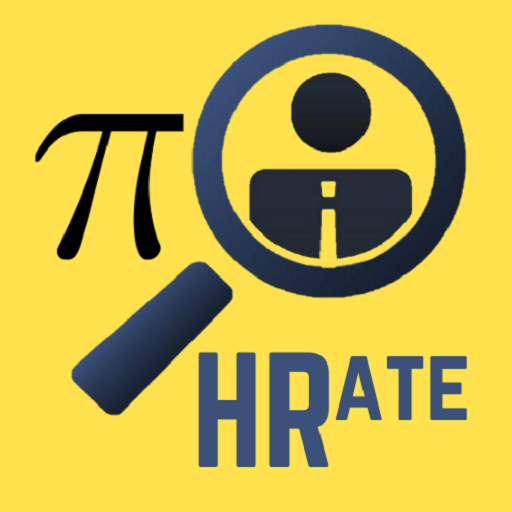The Path Less Traveled: Entering Apple Careers as a Career Changer or Mature Professional

Apple, the quintessential symbol of innovation, often conjures images of young engineers coding late into the night. This perception can be intimidating for the career changer—the marketing veteran pivoting to product management, the teacher transitioning to training, or the military officer aiming for operations leadership. It can be equally daunting for the mature professional who brings decades of institutional knowledge but worries their experience is too niche, or their skills outdated, for the fast-moving tech environment.
If you are a career changer or a mature professional, understand this: Apple doesn’t just hire resumes; it hires problem-solvers. And often, the most intractable problems—those involving complex logistics, human capital management, government relations, and resilience—are best solved by those with a non-traditional path and a lifetime of diverse experience.
This guide is dedicated to helping you reframe your rich, non-linear history into the powerful value proposition that Apple seeks. We will dissect how to translate your “past life” skills into the language of Cupertino, strategically navigate the application process, and ace the interview by selling the unique maturity and perspective only you possess.
I. Why Apple Actively Seeks the “Path Less Traveled”
The perception that Apple only hires from a narrow pool of elite university graduates is outdated. To maintain its dominance and manage its global scale, Apple needs people who have seen complexity, managed crises, and delivered results under pressure—skills often honed outside the typical tech track.
1. The Need for Diverse Cognitive Inputs
Innovation doesn’t happen in an echo chamber. When teams are composed only of people who think alike, they miss threats and opportunities. A finance expert pivoting to supply chain brings a risk-mitigation lens that a logistics native might overlook. A former journalist pivoting to marketing communications brings narrative clarity that engineers often lack.
Apple’s commitment to building products that serve billions of diverse global users demands a workforce with diverse experience and thinking. Your non-traditional path is not a liability; it is your distinct competitive advantage, providing depth and resilience.
2. The Value of Institutional Wisdom and Resilience
Mature professionals bring profound benefits that often outweigh technical speed:
- Political Acumen and Negotiation: Decades of experience interacting with different organizational layers, managing stakeholders, and handling complex political landscapes (crucial for dealing with international partners, vendors, and governments).
- Structured Decision-Making: Resilience under pressure and the ability to distinguish between short-term noise and long-term strategic needs.
- Mentorship and Leadership: The capacity to stabilize fast-moving teams and mentor younger talent, ensuring knowledge transfer and cultural continuity.
In many operational roles, such as Technical Program Management (TPM), Procurement, and HR leadership, the ability to manage humans, budgets, and expectations is far more critical than being the fastest coder.
II. Identifying Your Transferable Superpowers
The key to a successful career transition at Apple is abandoning your old job titles and focusing intensely on the transferable skills you gained. Apple doesn’t care what industry you were in; they care how you solved problems, how you led, and how you measured success.
Here is a framework for translating your diverse experience into Apple’s lexicon:
A. Operational Excellence and Execution (The “How We Get Things Done”)
Apple operates on strict timelines and requires faultless execution. Many non-traditional roles translate directly here.
| Your Past Role/Experience | Apple Role to Target | Transferable Skill Translation |
| Military Officer/Pilot | Technical Program Manager (TPM), Operations Lead | Cross-functional alignment, crisis management, execution under severe time constraints, mission-critical delivery. |
| Educator/Professor | Learning & Development Specialist, Curriculum Design, Training Manager | Explaining complex concepts simply, adult learning theory, stakeholder management, building foundational knowledge. |
| Healthcare Administrator/Manager | HR/People Specialist, Facilities Management, Compliance Officer | Navigating complex regulatory environments, privacy compliance (HIPAA translates well to Apple’s privacy standards), resource allocation. |
| Retail/Hospitality Management | Retail Leadership, Vendor Management, Supply Chain Logistics | Inventory management, rapid scaling, customer experience excellence, managing large hourly teams, operational metrics. |
B. Strategic Thinking and Problem Solving (The “What If?”)
Apple’s culture is about anticipating the future. Your experience managing non-technical complexity provides a fresh look at business strategy.
- Financial Professionals (e.g., Banking, Insurance): Your depth in risk management, forecasting, and regulation is crucial for roles in Finance, Legal, and Corporate Development. Frame your experience around minimizing risk and maximizing strategic investment return.
- Law Enforcement/Intelligence: Your background in forensic analysis, pattern detection, and information security is highly valuable for corporate security, fraud detection, and trust & safety teams. Highlight your ability to handle sensitive, confidential information—a massive cultural fit for Apple.
- Small Business Owner/Entrepreneur: You are a natural product manager. You managed P&L, made hiring decisions, marketed the product, and secured funding. Frame this around ownership, accountability (Apple’s concept of the “DRI” – Directly Responsible Individual), and end-to-end delivery.

III. Strategic Job Hunting: Applying with a Non-Linear Background
The traditional method of submitting a generic resume won’t work for a career changer or mature professional targeting Apple. You need a targeted, strategic approach that addresses your unique challenges head-on.
1. The Resume Translation Project
Your resume must be ruthlessly curated to align with Apple’s language.
- Ditch the Chronology, Embrace the Functional: If your career jump is significant (e.g., teaching to IT), use a hybrid or skills-based resume format. Lead with a powerful “Professional Summary” that explicitly names the role you seek and highlights the transferable skills you bring.
- The Power of Metrics: Every bullet point must be quantifiable. Instead of saying “Managed a team,” say: “Led a geographically dispersed team of 15 senior analysts, resulting in a 20% efficiency gain in report generation time.” Use metrics that reflect the scale and budget you managed, even if the industry was different.
- Focus on Outcomes, Not Tasks: Apple is obsessed with results. Did you introduce a new process? Did you cut costs? Did you improve the user experience? Link every past achievement to an outcome that matters to a world-class technology company.
2. Networking: The Essential Non-Traditional Path
For a career changer, cold applying is rarely effective. Networking and internal referrals are your most powerful tools.
- Target Alumni and Industry Pivots: Use LinkedIn to find people who successfully made the same pivot you are attempting (e.g., “former military, current Apple TPM”). Ask them how they framed their experience and which roles were receptive to their non-traditional path.
- Informational Interviews: When connecting with current Apple employees, emphasize learning, not asking for a job. Say: “I respect Apple’s commitment to privacy and am looking to apply my 20 years of crisis communication experience to that space. Can you share what challenges your team currently faces that align with my background?”
- The Referral Gambit: If you secure a referral, your advocate can explain the context of your diverse experience to the recruiter, preemptively answering questions about your unusual background.
3. Targeting the Right Roles
Avoid entry-level roles unless you are truly starting over in a technical field. As a mature professional or experienced career changer, target roles where your deep knowledge is an asset:
- Technical Program Management (TPM): Excellent fit for former military, large project managers, or construction/engineering veterans. Requires managing scope, schedule, and complex interdependencies.
- Procurement/Global Supply Chain: Perfect for those with complex finance, manufacturing, or operations experience. Your negotiation skills and understanding of global logistics are paramount.
- Human Resources & Talent Acquisition: Ideal for those pivoting from education, law, or organizational leadership. Apple needs seasoned professionals to manage its vast workforce and culture.
- Compliance, Regulatory, and Legal Affairs: Your experience in regulated industries (healthcare, finance, defense) is highly valued in ensuring Apple maintains its global reputation for ethics and compliance.
IV. The Interview Crucible: Framing Your Diverse Narrative
The interview is where you must seamlessly blend your past experience with Apple’s future ambitions. Recruiters and hiring managers will scrutinize the logic behind your move.
1. Handling the “Why Apple, Why Now?” Question
This is the most crucial question for a career changer. Your answer must be genuine, specific, and connected to Apple’s mission, not just a desire for a change of pace.
- Bad Answer: “I’ve been in banking for 20 years and felt like it was time for something new in tech.” (Too vague, lacks passion.)
- Good Answer: “In my past role as a hospital administrator, I saw firsthand the critical need for secure, seamless health data management. I’m moving to a Career Changer path at Apple specifically because of your pioneering work in HealthKit and privacy commitment. My 15 years of operational excellence in a high-stakes, regulated environment directly prepares me to manage the logistics of integrating these complex features at scale.”
2. Turning Gaps into Growth Stories
Recruiters might flag time gaps, years in a non-tech industry, or a lack of specific certifications. Prepare succinct, positive narratives for these:
- Addressing Time Gaps (The Mature Professional): If you took time off for family or personal pursuits, frame it as a time of strategic focus and skill development. (e.g., “I took a two-year hiatus to manage a complex family situation, which significantly sharpened my prioritization, long-range planning, and delegation skills—all critical for a TPM role.”)
- Addressing Lack of Domain Experience (The Career Changer): Acknowledge the gap, but immediately pivot to your commitment to learning and the value of your outsider perspective. “While I don’t have 10 years in cloud engineering, my two decades in automotive engineering taught me the rigidity and process discipline required for high-reliability systems. I have since completed my AWS Certified Cloud Practitioner certification to bridge the conceptual gap.”
3. Behavioral Questions: Leveraging Life Experience
Apple’s interviews are heavily behavioral (using the STAR method). Your diverse experience provides rich, high-stakes examples that younger candidates may not have.
- Focus on High-Impact Events: Don’t talk about petty office politics. Talk about the time you managed a major system failure, negotiated a massive multi-year vendor contract, or led a team through an unexpected organizational merger. These show resilience, judgment, and high emotional intelligence (EQ)—skills that AI and junior staff cannot replicate.
- Highlight Conflict Resolution: Apple values directness and rigorous debate. As a mature professional, you have likely mastered conflict resolution. Detail scenarios where you handled high-stakes disagreement between peers or executives while maintaining professionalism and reaching a positive outcome.
V. Upskilling and Bridging Technical Gaps
Even if you are targeting a non-technical role (like HR or Procurement), a basic level of technical literacy is mandatory to succeed at Apple. A strategic investment in upskilling shows the company you are serious about making the pivot.
1. Foundational Digital Literacy
- Cloud Basics: Familiarity with AWS (Amazon Web Services), Azure, or Google Cloud is highly beneficial, as Apple leverages cloud infrastructure. Consider the AWS Certified Cloud Practitioner course.
- Agile and Project Management: If you are targeting any PM or TPM role, PMP (Project Management Professional) or Agile/Scrum certifications (CSM) are essential to speak the modern tech planning language.
- Data Literacy: Take courses in SQL, basic Python for data analysis, or tools like Tableau. You don’t need to be a data scientist, but you must be able to ask the right questions of data and interpret reports generated by ML models.
2. Leveraging Specialized Programs
If your pivot requires a deeper technical dive, look for immersive programs that cater to career changers:
- University Bootcamps: Many top universities now offer short, intensive programs in software development, data science, and UX/UI design.
- Post-Graduate Diplomas: A specialized diploma in a field like cybersecurity or supply chain management can quickly validate your commitment to a new sector.
- Open-Source Contributions: For those pivoting into engineering, demonstrating self-driven learning and contribution to open-source projects proves your passion and technical aptitude better than any degree.
The key message here is that while your past provides the foundation, your current commitment to adaptation and growth is what qualifies you for an Apple career changer role.
VI. Conclusion: Your Value is Your Narrative
The journey of a career changer or mature professional seeking a role at Apple is often longer and more challenging than the traditional route, but it carries a higher potential reward. Your non-traditional path is a testament to flexibility, resilience, and the ability to adapt—qualities that are essential for long-term success in an ever-evolving tech company.
Stop seeing your diverse experience as baggage. Instead, recognize it as institutional wisdom, tested leadership, and unique perspective. By translating your “superpowers” into Apple’s language, targeting the roles that require your maturity, and mastering your narrative in the interview, you can confidently take the path less traveled and find your place shaping the future at Apple.
FAQ: Navigating Apple as a Career Changer
Does Apple hire career changers with non-traditional backgrounds?
Yes, absolutely. While engineering roles are highly competitive, Apple actively seeks candidates with diverse experience for roles in operations, supply chain, finance, HR, legal, and program management. The mature professional often brings critical skills in resilience, complex stakeholder management, and institutional knowledge that are highly valued.
How should I translate my non-tech experience (e.g., military, teaching, healthcare) onto an Apple resume?
Focus on transferable skills and quantifiable achievements. Translate industry jargon into universally understood business terms. For example, frame a military role around “Cross-Functional Program Execution” or a teaching role around “Curriculum Design and Stakeholder Training,” using metrics like budget managed, number of people trained, or efficiency gains achieved.
What roles at Apple are most welcoming to a career changer or mature professional?
Roles that rely heavily on project execution, people management, negotiation, and risk mitigation are excellent fits. Top targets include Technical Program Manager (TPM), Project Manager, Procurement/Vendor Manager, HR Specialist, and roles within the Compliance and Regulatory departments.
Is age discrimination a concern for mature professionals applying to Apple?
While the tech industry has faced scrutiny over age, Apple is a large, global corporation legally committed to fair hiring practices. The best strategy for the mature professional is to neutralize any concern by focusing intensely on the currency of their skills (upskilling, certifications) and framing their age as a source of invaluable institutional wisdom, stability, and high-level leadership ability.
Do I need a technical degree to join Apple as a career changer?
Not necessarily. For technical roles (Software Development Engineer), a relevant degree or intensive technical bootcamp experience is typically required. However, for non-technical or hybrid roles, demonstrating AI literacy, understanding of cloud technology (like AWS), and having strong Project Management certifications often substitutes for a traditional tech degree.



